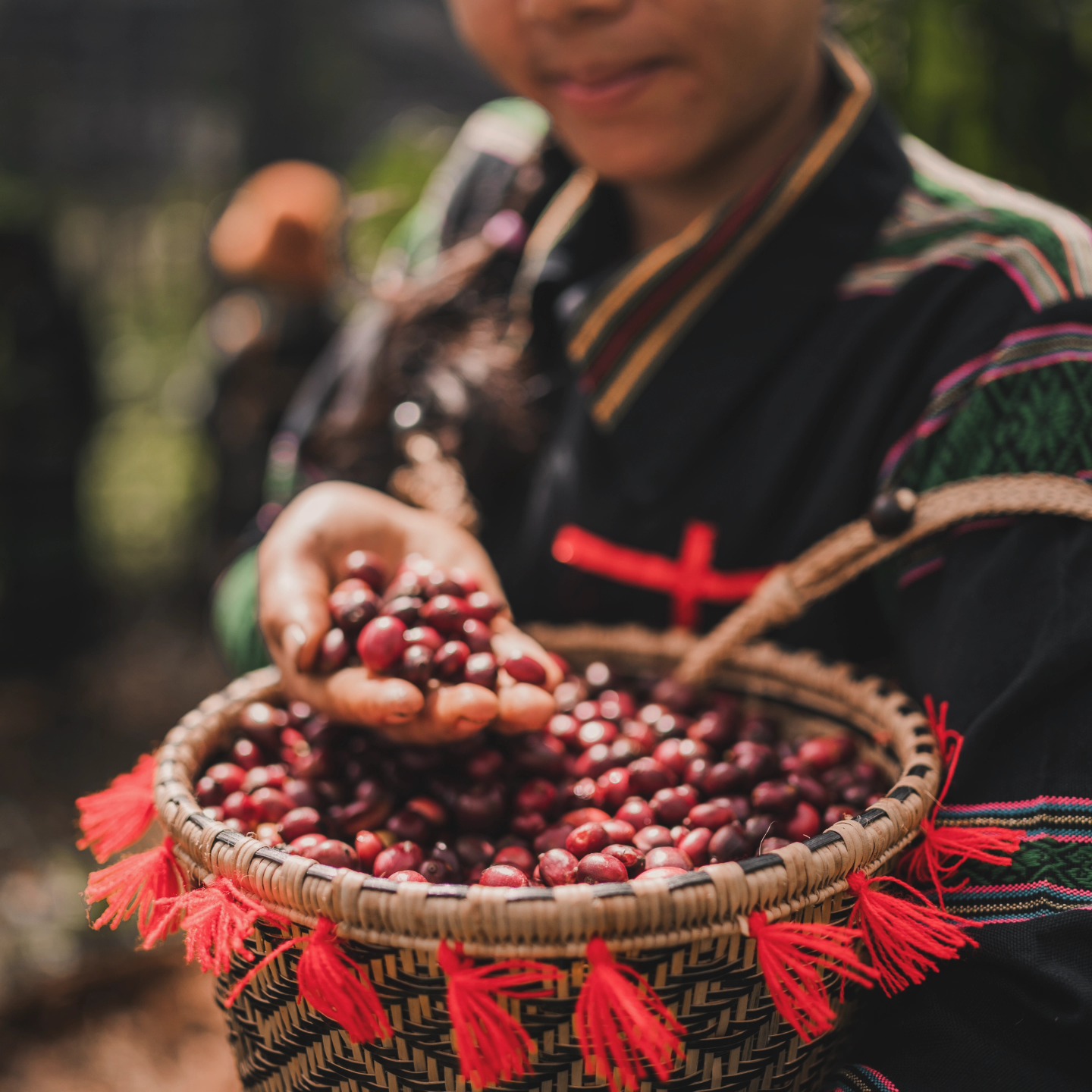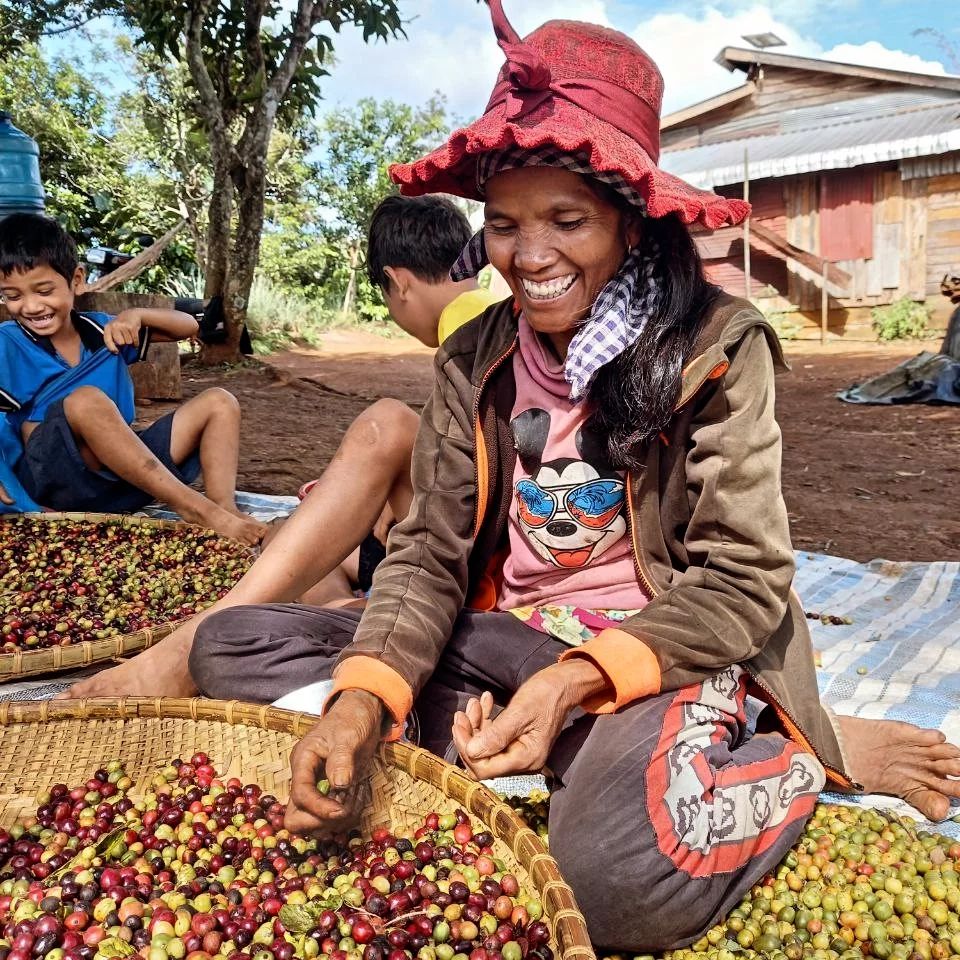
From Coffee Bean to Prosperity
How Three Corner Coffee Empowers Mondulkiri’s Indigenous Farmers
As the innovator behind Three Corner Coffee, Cambodia's first international-standard coffee roaster, Josh has partnered with local farmers to enhance their income and preserve the legacy of the country's first coffee plantations.
Born in the U.S. but raised in Cambodia, Josh’s journey has been anything but traditional. From an early age, he explored various sectors – from landscaper and goldmining to teaching and restaurant management – until his career path converged with his passion for coffee.
Interestingly, Josh’s journey with coffee began at a time when he didn’t even enjoy drinking it. After helping to co-found Three Corner Coffee in 2010, Josh later took over the business in 2017, which was sourcing Cambodian robusta beans from Bunong farmers in Mondulkiri.

Coffee has deep roots in Indochina, first introduced by the French in the 1800s and cultivated by indigenous Bunong farmers in Mondulkiri and Ratanakiri. Initially sourcing from Ratanakiri, Three Corner Coffee faced challenges due to limited availability and eventually focused its efforts solely on Mondulkiri. "Our goal is to support and grow the industry from the very people who have nurtured it for generations. These farmers have grown coffee for over seven generations, and we want to build on that legacy," Josh explains.
Sustainability wasn’t always central to the business, but things began to change after Josh’s wife, Sona, who later became the company’s ‘Sustainability Champion,’ introduced him to more eco-conscious practices. The turning point came when Josh and Sona joined Oxfam's Impact SME Program in 2022, which expanded their understanding of sustainability and connected them with a broader network of like-minded entrepreneurs.
Under Josh and Sona’s leadership, the business has introduced innovative eco-friendly practices, including a jar-refill system at their Phnom Penh café and the use of recyclable materials at events they serve. Their long-term goal is to completely eliminate plastic packaging by switching to fully recyclable aluminium cans. "Our aim is zero plastic waste," he affirms.

Among all the opportunities offered by the Impact SME Program, Josh found the Asia Inclusive and Responsible Business Forum 2023 hosted by Oxfam in Bangkok particularly transformative. "The most valuable part has been building an ecosystem—connecting with people who share our vision and learning practical ways to apply sustainable practices on the ground," he recalls.
Additionally, inspired by the program, Josh and Sona are now seeking to reinitiate a plan that has been more than a decade in the making to have Three Corner Coffee establish a post-harvest processing center in Mondulkiri. This center aims to provide training to indigenous farmers, helping them enhance the quality of their coffee while also improving their access to agricultural inputs and financing.
With the scaling plan and the program's support, Josh has successfully secured a grant of $100K+ to acquire additional resources, develop the local market for Cambodian grown coffee and establish a post-harvest center in Mondulkiri.
Three Corner Coffee now exports its products to markets in Germany, Japan, the U.S., Korea, Singapore, Hong Kong, and Taiwan, though its primary focus remains Cambodia. "One of our biggest milestones came in 2019 when we sourced over 34 tonnes of coffee from indigenous farmers in a single harvest," Josh proudly shares.
Over the past 14 years, Three Corner Coffee has worked with more than 60 indigenous farming families, of which 64% are women who contribute to collecting and processing the beans. Josh's journey illustrates not only the impact of sustainable business on the environment but also how empowering local communities can transform an entire industry.




